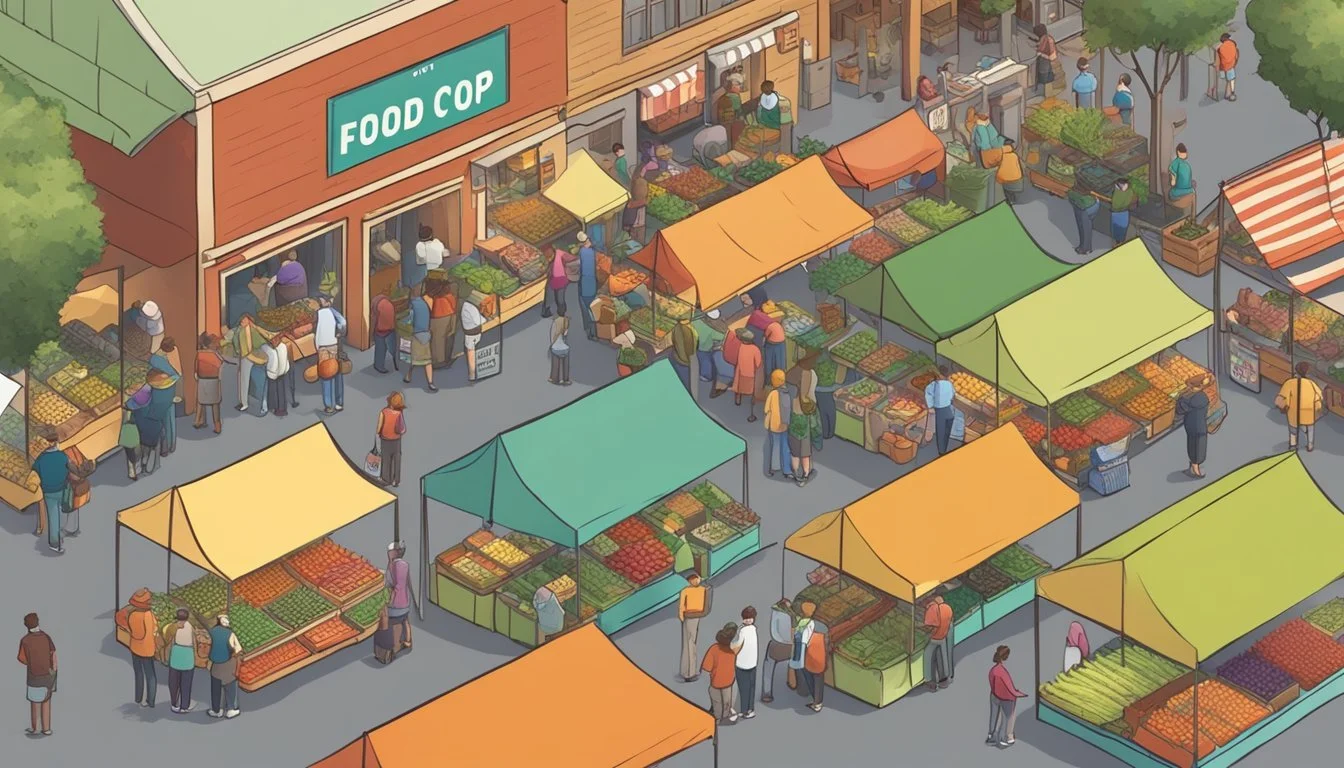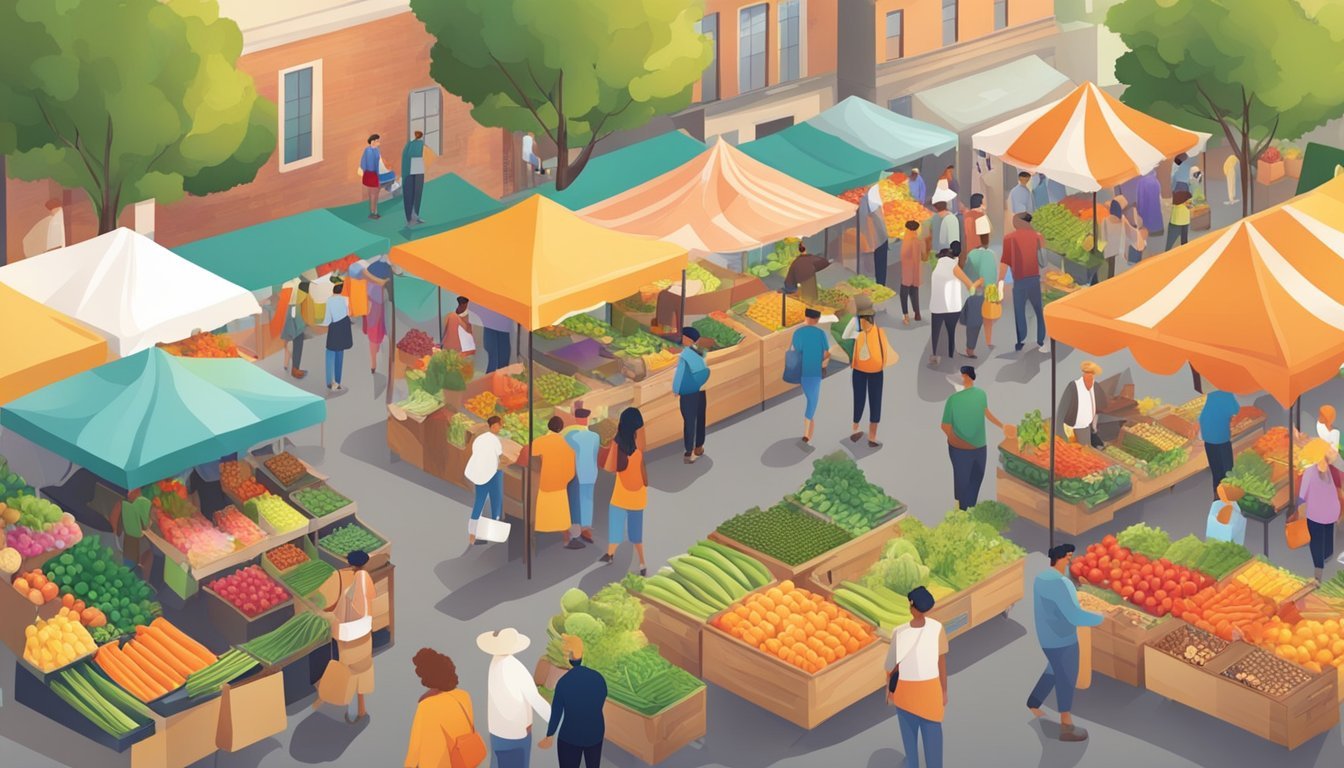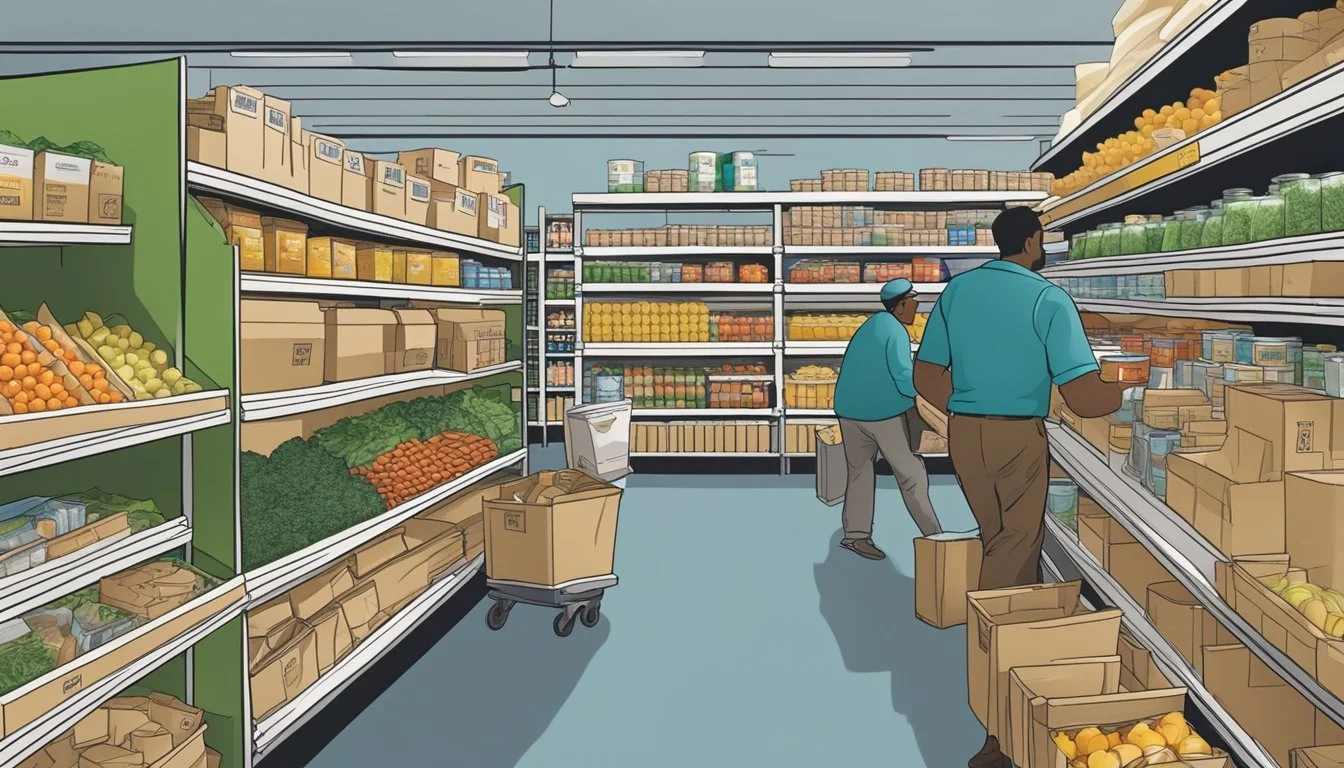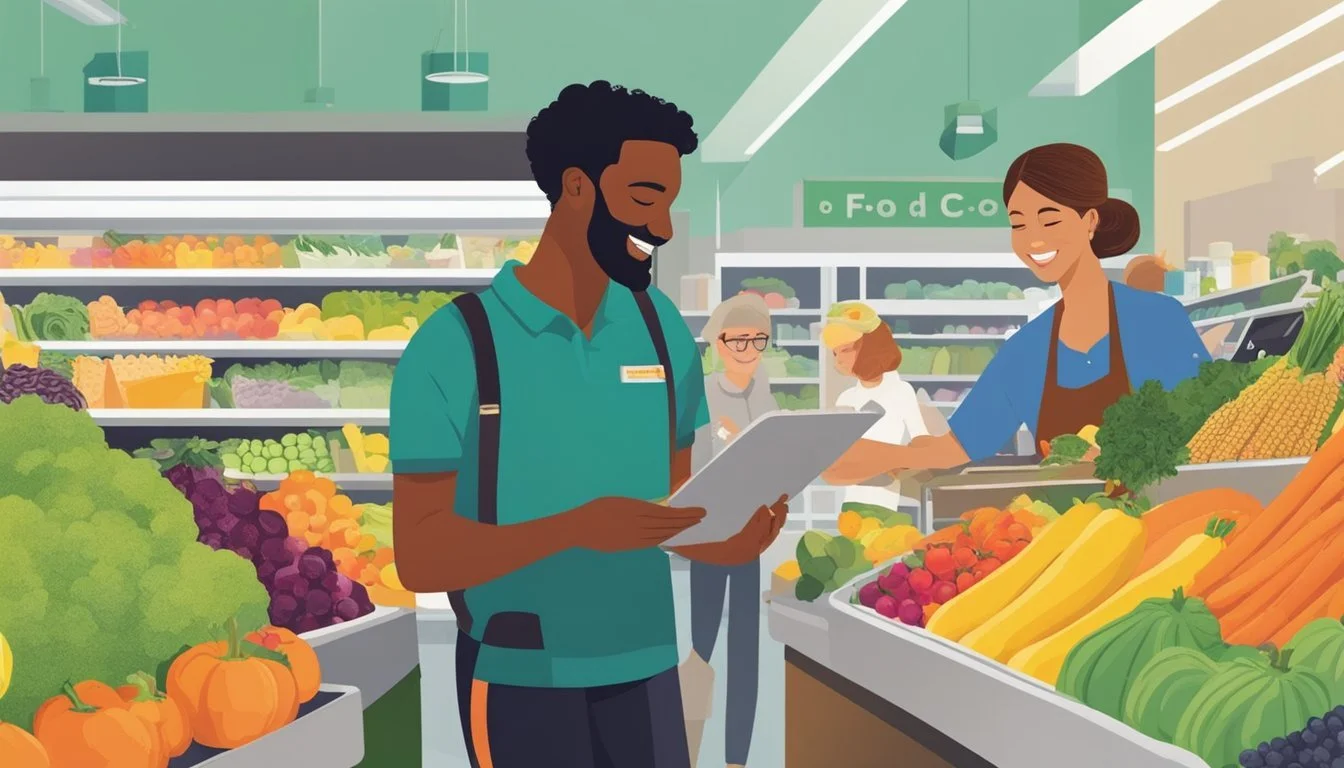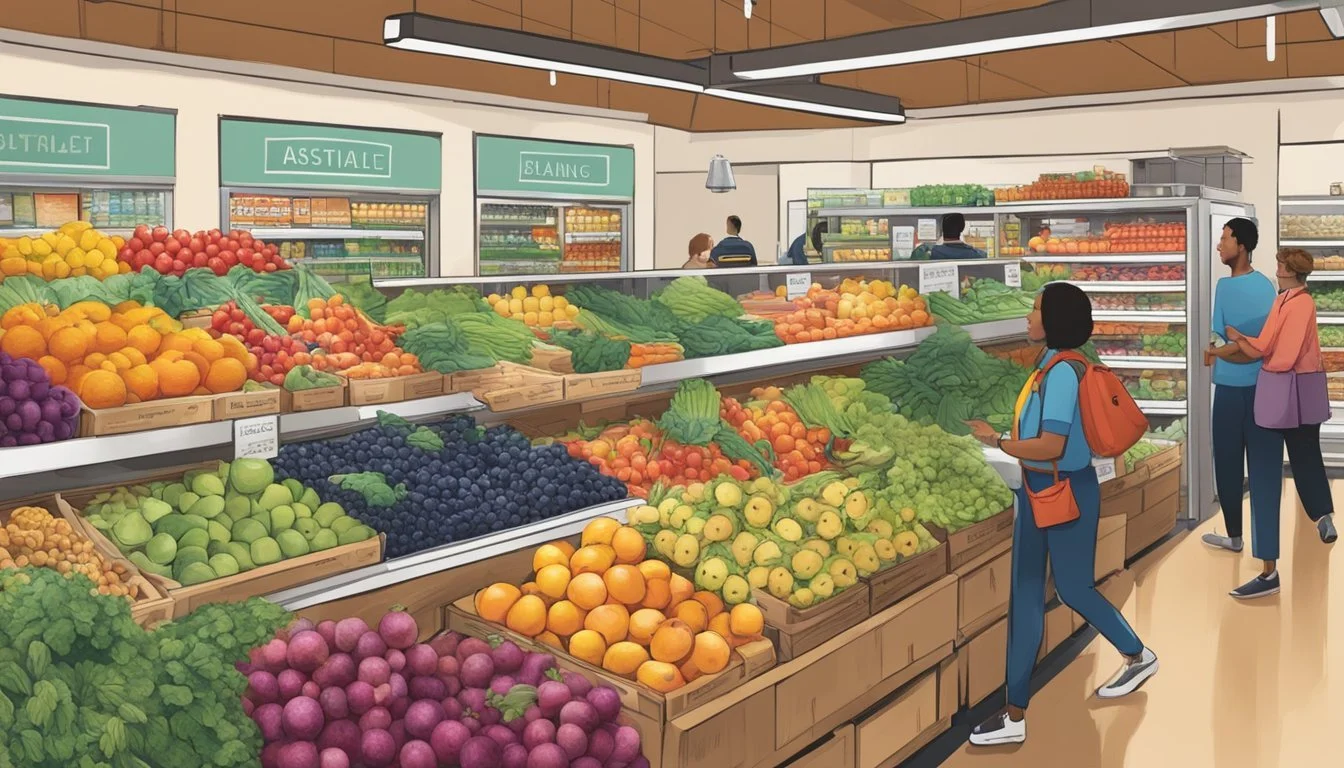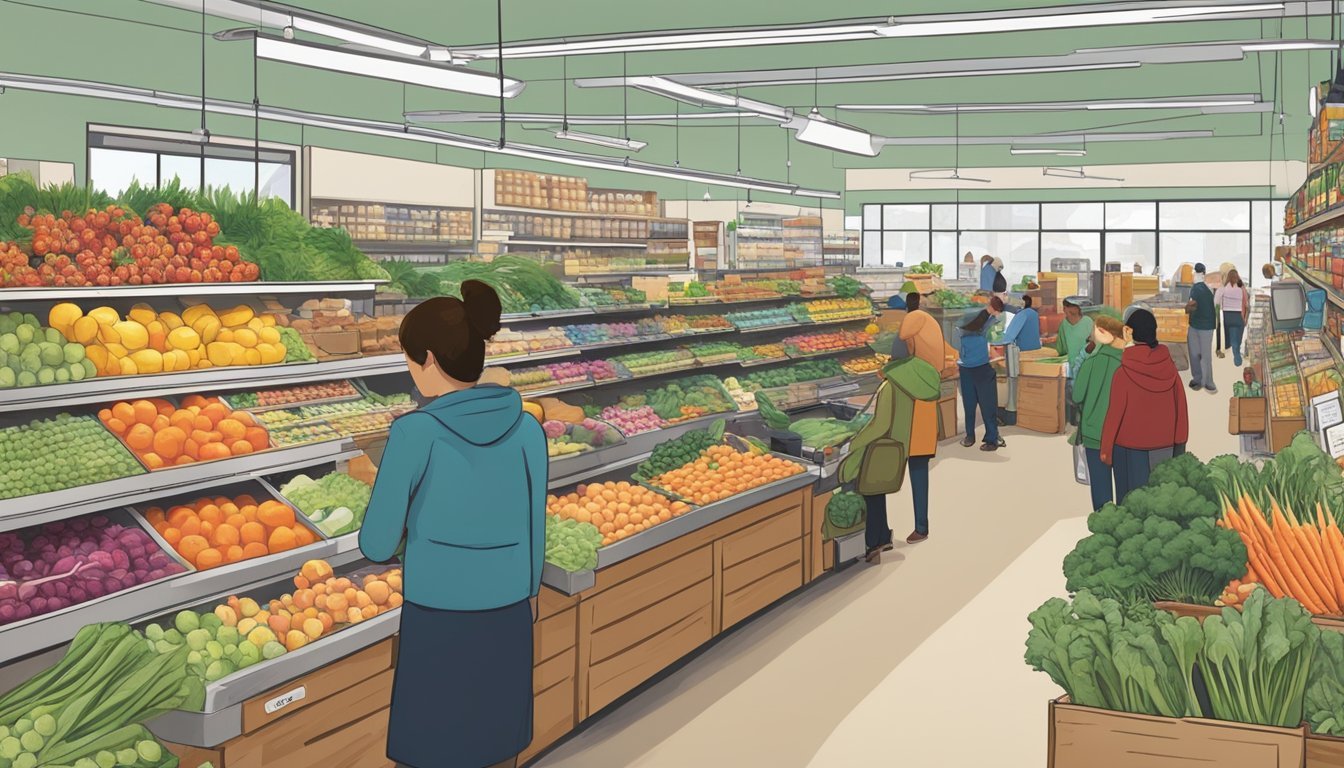Guide to Food Co-Ops in Washington, DC
Your Essential Resource
Food co-ops in Washington, DC are community-driven establishments that offer a unique alternative to traditional grocery shopping. In the nation's capital, food co-ops serve as a model for local economy and sustainability. They typically offer a variety of healthy food options and local products that not only cater to the needs of the residents but also promote equitable pricing and support a healthy lifestyle. These co-ops are deeply integrated within Washington, DC's cultural ethos, offering entrepreneurial opportunities, skill training, and employment to residents in various wards, with a substantial impact in Wards 7 and 8.
The cooperative model thrives on member ownership and democratic operation, which means that each member has a say in the business decisions of the co-op, furthering the principles of equity and communal welfare. Moreover, DC's food co-ops are celebrated for their efforts to bring quality, organic, and affordable food choices to areas that are underserved by traditional supermarkets. They are a linchpin in creating a food-secure community where access to nutritious food isn't a privilege but a norm.
These collectives often become centers for community engagement, going beyond the scope of mere grocery outlets. They host various events and workshops that educate the public about food sources, sustainable practices, and health. With inclusivity at the heart of their operation, Washington, DC's food co-ops play a significant role in shaping a community that values active participation, health-conscious decisions, and social responsibility.
History of Food Co-Ops in DC
Food cooperatives in Washington, DC have a rich and significant history characterized by collaborative community efforts to provide equitable access to healthy food.
Emergence and Growth
The industrial revolution catalyzed the formation of early cooperatives in Europe, and the concept spread globally, reaching the United States and, eventually, Washington, DC. As urban populations grew, so did the reliance on markets and stores. The city's food co-ops arose from necessity, as community members in DC sought to create alternatives to the traditional food supply chains. Historic entities like the Washington Cooperative Bookshop demonstrate DC's early engagement with cooperative models beyond just food.
Key Milestones
Key events have shaped the evolution of food co-ops in DC. An example is the opening of community-oriented food co-ops in the 1930s, such as the Pure Food Co-operative Grocery Store in Harlem, which served as a model of success and influence, at one point causing local competitors to shutter due to its success. In more recent history, the establishment of the Community Grocery Co-op reflects the ongoing commitment to ensure that residents, particularly in DC's Wards 7 and 8, have access to healthy and affordable food while also supporting local jobs and training. These milestones underpin the vital role that food co-ops continue to play in nurturing community health and empowerment in Washington, DC.
Understanding Food Co-Ops
Food co-ops in Washington, DC represent a collaborative approach to grocery shopping and community building. They operate on a business model that prioritizes local needs and democratic decision-making.
Defining the Co-Op Business Model
Food cooperatives (co-ops) are collectively owned and governed retail establishments that sell food and other goods. They are based on the principles of shared ownership and democratic control by their members. Each member-owner has an equal say in the co-op's operations, irrespective of the amount they have invested financially.
Benefits to Communities
Food co-ops offer numerous benefits to the communities they serve. They often prioritize the sale of locally sourced and organic products, supporting regional farmers and producers, thus contributing to the local economy. Additionally, co-ops focus on equitable access to high-quality food, enhancing the health and wellness of community residents. Sustainability is a key factor, with many co-ops minimally impactful environmental practices.
Membership and Ownership Structure
The membership and ownership structure of a food co-op is unique:
Membership: Open to any individual who wishes to use the co-op's services and is willing to accept the responsibilities of membership.
Ownership: Members usually pay an equity fee to gain a share of ownership and the right to vote on important matters.
Governance: Co-ops are governed by a board of directors elected from among the membership, ensuring that decisions reflect the members' desires.
By participating in a food co-op, members invest in a business that is inherently responsive to their needs and dedicated to the welfare of their community.
Prominent DC Food Co-Ops
In the bustling urban landscape of Washington, DC, food co-ops offer a local, community-driven alternative to mainstream grocery shopping. They emphasize sustainable practices, member ownership, and community engagement. Below are notable cooperatives that have made an impact in the DC area.
Glut Food Co-Op
Location: Mt. Rainier, MD
Features:
Offers a variety of grocery and health food items.
Known for affordability and supporting local produce.
Bethesda Co-Op
Location: Cabin John, MD
Features:
Provides both organic and conventional food choices.
Focuses on eco-friendly practices and community-based operations.
Community Grocery Co-Op
Location: Currently proposed for Washington, DC
Features:
Aiming to provide access to healthy food in underserved areas.
Plans to operate as a member-owned and controlled cooperative.
Local Programs and Initiatives
Washington, DC's food co-ops are deeply integrated into the local community through various programs and initiatives designed to increase food access, nurture community bonds, and provide education. These cooperative ventures help address issues of food insecurity while fostering economic opportunities.
Educational Outreach
Community Grocery Co-op (CGC) spearheads initiatives to improve residents' access to healthy food while also offering skills training and employment in Wards 7 and 8. They focus on equitable and affordable solutions that encourage a healthy lifestyle. Simultaneously, the DC Food Policy Council supports these efforts, leveraging expertise across the DC food system to increase awareness and implement policies for a just and sustainable food landscape.
Community-Based Buying Clubs
Entities like the Shepherd Street Collective Buying Club and the Sure Savings Collective Buying Clubs have emerged to facilitate collective purchasing power for communities, enabling them to buy food in bulk directly from suppliers at reduced costs. The Women’s Community Bakery Collective plays a dual role by offering opportunities for women in business and also acting as a source of nutritious, locally-sourced baked goods. These buying clubs and collectives not only provide considerable cost savings for members but also reinvest profits back into the community, strengthening the local economy.
Food Co-Op Impact on Healthy Living
Food Co-Ops in Washington, DC aim to increase accessibility to high-quality, nutritious food and enhance community health through robust programs.
Access to Organic and Healthy Food
Food Co-Ops are pivotal in providing access to a diverse array of organic and healthy products. They prioritize sourcing from local producers to ensure fresh, minimally processed options are available to consumers. The availability of organic produce, whole grain products, and non-GMO items is significantly higher in co-ops than in conventional grocery stores. They offer a needs-based discount program, making healthy, organic options more accessible to individuals across different income levels.
Access Points:
Local: Prioritize locally-grown, organic produce
Assortment: Wide range of healthy, minimally processed food items
Affordability: Needs-based discounts enhance access to organic food
Community Health Programs
Food Co-Ops extend their impact beyond providing healthy food; they actively engage in community health programs. These include educational initiatives on nutrition and wellness, cooking classes that teach healthy meal preparation, and partnerships with local health organizations. These programs are crucial for empowering community members to make informed food choices, thereby promoting overall community health and wellness.
Program Highlights:
Education: Nutrition and wellness workshops
Skill Building: Cooking classes focusing on healthy meal prep
Partnerships: Collaborations with local health organizations and non-profits
Features like in-store nutrition labeling and the promotion of sustainable food practices underscore their commitment to fostering a health-conscious community.
Marketing Strategies for Food Co-Ops
Strategic marketing is critical for the success of food co-ops, particularly in how they engage with surrounding communities and heighten their brand awareness. These strategies directly influence their ability to attract and retain customers.
Engaging with Communities
A food co-op thrives on its community-centric model. It can engage with the local communities by organizing and participating in community events, which creates presence and encourages community interaction. Furthermore, educating the public on the benefits of cooperative ownership and the value of locally sourced products can foster deeper community relationships. Implementing community feedback mechanisms demonstrates that the co-op values its members' and customers' input, further cementing its community ties.
Promotion and Brand Awareness
Effective promotion and building brand awareness are essential for a food co-op's visibility. Traditional marketing channels (e.g., local newspapers and radio) have been effective, but digital strategies are now indispensable. Utilizing social media platforms can boost visibility and engagement with a wider audience. It is also crucial for food co-ops to maintain a well-designed, informative website that reflects their brand identity. Partnerships with local businesses and institutions can also serve as a means of mutual promotion, expanding the co-op's reach.
By prioritizing these strategies, food co-ops can establish a strong, recognizable presence that resonates with their communities and anchors their market success.
Operational Challenges and Solutions
Food co-ops in Washington, DC often navigate a complex set of operational challenges. The solutions they develop can set a precedent for success and sustainability within the community-based food retail sector.
Logistics and Supply Chain
Effective logistics and supply chain management are pivotal for the smooth operation of food co-ops. They must ensure a steady flow of groceries, meat, milk, and bulk items, often preferring to source from local producers to support the community and reduce carbon footprint.
Vendor Relationships: Establish strong relationships with local farmers and vendors. This ensures priority access to fresh produce and can lead to better pricing.
Inventory Management: Utilize technology for real-time inventory tracking to prevent overstocking or understocking, especially for perishable items.
Transportation: Develop a reliable transportation plan that aligns with the co-op’s delivery schedules, especially for temperature-sensitive goods like meat and milk.
Financial Management
Financial management encompasses effective budgeting, pricing, and cash flow management. For food co-ops, it's not just about profit; it's about providing value to their members while maintaining financial health.
Cash Flow Analysis: Regularly analyze cash flow to ensure that there are sufficient funds for operational costs and unexpected expenses.
Pricing Strategy: Set prices competitively while still reflecting the true cost of sourcing sustainable and local products.
Cost Control: Monitor operational costs closely. Bulk purchasing can result in savings, which can then be passed on to members.
Resources and Support for Food Co-Ops
In Washington, DC, food co-ops have a wealth of resources and support options designed to foster networking, collaboration, and provide technical assistance. These tools are fundamental in helping food co-ops to thrive, offering avenues for training and development crucial to cooperative success.
Networking and Collaboration
Food co-ops in Washington, DC can enhance their operations through networks such as the Puget Sound Food Hub Co-op (PSFH Co-op), which exemplifies a cooperative network facilitating the marketing, aggregation, and distribution of locally produced food. Initiatives like these offer invaluable platforms for food co-ops to share resources, knowledge, and collectively leverage their market presence.
Technical Assistance and Training
Organizations such as the Food Co-op Initiative provide technical assistance and training to food co-ops. This non-profit organization is dedicated to enabling new food co-ops to navigate an efficient startup process. They offer:
Information: Clear-cut guidance on starting a food co-op, operational best practices, and scalability.
Technical Assistance: Direct support in areas such as business planning, governance, and member recruitment.
Training: Opportunities tailored to equip individuals with the necessary skills for managing and growing a food cooperative.
By utilizing these forms of support, food co-ops in Washington, DC can access tailored assistance that ensures their longevity and success in the community.
Food Co-Ops in the Broader Maryland Area
Food cooperatives in the Maryland region have seen a considerable growth, spreading their roots beyond the confines of Washington, DC. These community-centered organizations offer a source of locally-sourced and organic products, emphasizing collective buying and local food movements.
Expansion Beyond DC
In Maryland, food co-ops such as the Glut Food Co-op are instrumental examples of this expansion. Located in Mt. Rainier, Glut has established itself as a community cornerstone, paralleling the retail experience of larger chains but with a clear focus on health-conscious and locally-sourced offerings.
Regional Cooperation
Maryland's local food movement has been fostering regional cooperation, as seen through initiatives like the Western Maryland Food Council. Their efforts in webinars and educational programs have proven pivotal in accentuating the benefits and processes of starting and maintaining food co-ops, thus supporting a sustainable regional food system.
Engaging with the Food Co-Op Community
Engagement with the food co-op community in Washington, DC, is central to fostering a successful cooperative ecosystem. It involves not only understanding the cooperative model but actively participating in events and initiatives that contribute to its growth and sustainability.
Events and Meetings
The dynamic network of food co-ops in Washington, DC regularly organizes events and meetings designed to unite members and facilitate knowledge exchange. These gatherings are pivotal for those interested in the cooperative movement, offering a platform to learn from established co-ops and contribute to emerging ones.
Events: Community events serve as a valuable opportunity for engagement, providing a forum where cooperative values translate into practice. The events can range from fundraisers to awareness campaigns, often highlighting the success stories of local co-operatives and their impact on food equity and community development.
Meetings: Regularly scheduled meetings create a space for members to voice their opinions, make decisions, and stay informed about their co-op’s developments. Meetings may include discussions on strategic planning, operational challenges, or educational workshops aimed at enhancing the effectiveness of the cooperative model.
Participation in these communal functions is not merely about attendance; it’s about active involvement. Whether through volunteering at events or contributing in meetings, every individual’s effort is a building block in the co-op’s collective success.
Media and Communication
The landscape of media and communication for food co-operatives in Washington, D.C., encompasses a range of platforms, prominently featuring radio broadcasts dedicated to co-ops and a strategic use of online channels to engage with their communities.
Co-Op Focused Broadcasts
WOL 1450 AM broadcasts Everything Co-op, a radio program hosted by Vernon Oakes. This show is a key medium for discussions about cooperative businesses and serves as an avenue for education and advocacy on the co-op model. Listeners can tune in to the program live on-air, or access it through various technologies such as a cell phone or via Tune-In Radio online.
Social Media and Online Presence
Food co-operatives maintain a robust presence online, utilizing social media to interact with members and the public. Platforms like Twitter, Facebook, and Instagram are used to disseminate information, boost visibility, and promote events. Additionally, live online sessions and updates regarding the cooperative market and its offerings are integral to fostering a connected and well-informed community.
Conclusion
Food co-ops offer a viable solution for enhancing access to healthy food in Washington, D.C., especially in areas with limited food options. They are rooted in principles of member control and collective operation, empowering communities to address food access on their terms. The information about starting and supporting food co-ops is widely available, representing not just a means to food security but also opportunities for education, entrepreneurship, and community building.
Residents of D.C. may consider the benefits of food co-ops:
Equitable access: Food co-ops can provide an equitable approach to accessing healthy, locally-sourced food products.
Affordability: By pooling resources, co-ops often offer competitive prices compared to traditional retail options.
Education: They can serve as platforms for educational programs on nutrition, food preparation, and sustainable practices.
Cooperative ventures require solid support systems. Potential members and organizers can leverage existing networks and resources such as the Coop DC for tailored guidance and connections. The shared experience of existing and past co-op initiatives can be invaluable in fostering new projects.
To conclude, food co-ops have the potential to significantly contribute to the well-being of Washington, D.C. residents, particularly in food deserts. Through cooperative efforts, citizens can not only gain access to necessary information but also become active participants in a more food-secure future for their communities.


